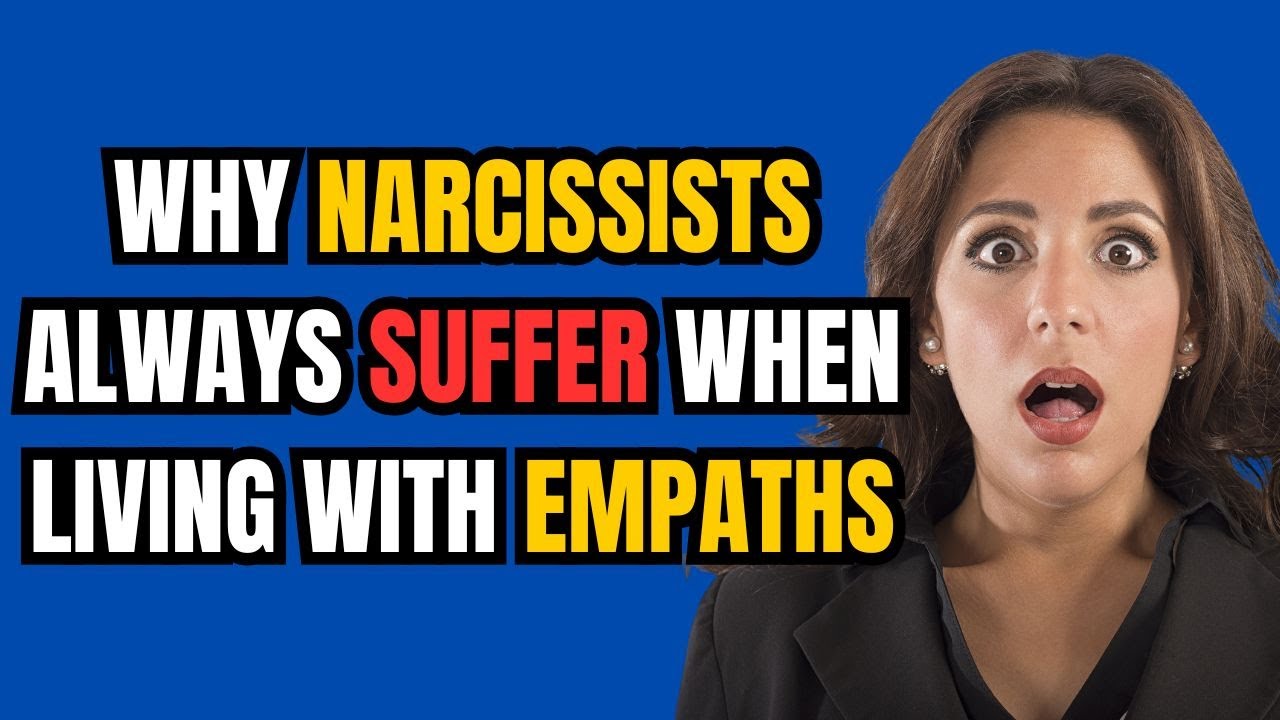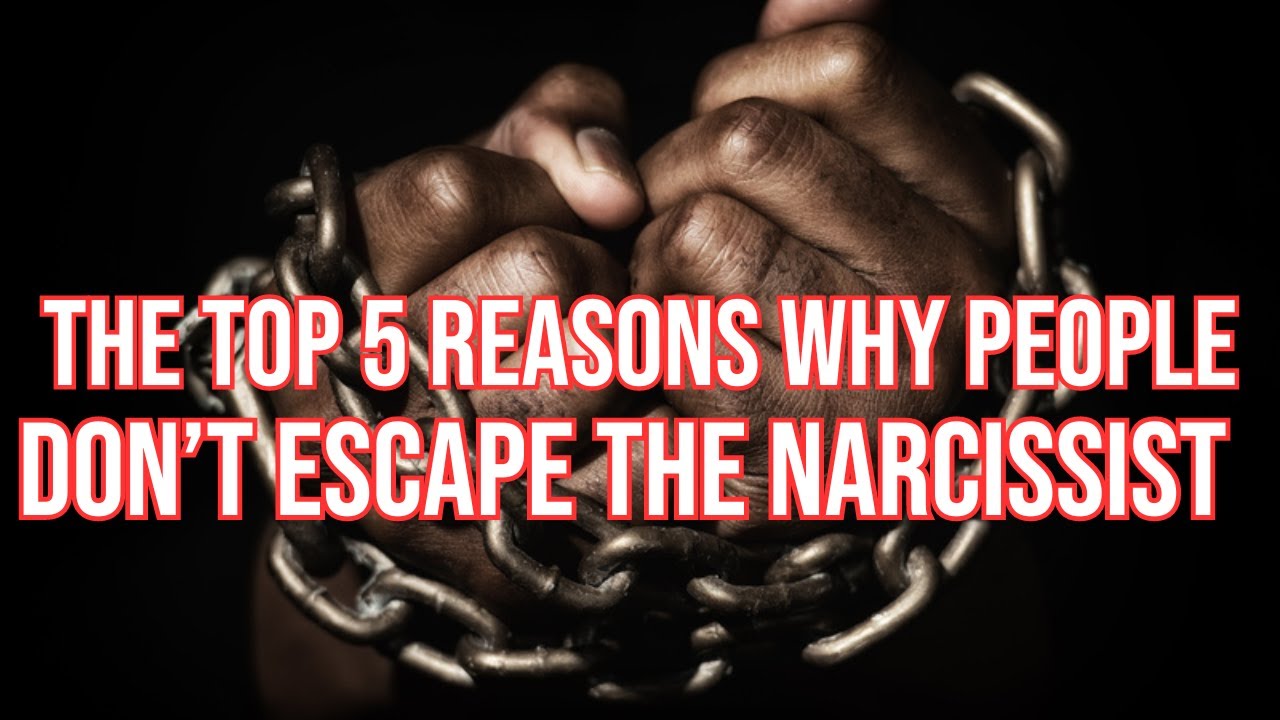Reasons Why a Narcissist Suffers So Much When They Have to Forget You |NPD| #vulnerablenarcissism
Summary
TLDRThis video explores why narcissists struggle to forget people after a relationship ends. Narcissists rely on relationships for ego validation, control, and self-worth, viewing people as tools rather than individuals. When forced to let go, they suffer from a loss of validation and control, leading to deep insecurity. They obsess over the past, struggle with rejection, and are unable to process emotions healthily. The fear of exposure and losing their carefully crafted image adds to their distress. Ultimately, their suffering stems from their fragile sense of self and inability to form genuine connections.
Takeaways
- 😀 Narcissists don't form relationships based on love or mutual respect, but instead view them as transactional, serving their need for ego-boosting and validation.
- 😎 In the beginning, a narcissist idealizes their partner, but over time, they devalue them once they see their flaws, yet still struggle to let them go.
- 😕 Narcissists depend heavily on validation from others. Losing someone who provided this validation creates a void that is hard for them to fill.
- 😳 A significant part of their suffering comes from losing control over a person. They often manipulate situations and emotions to maintain power in relationships.
- 😔 When someone leaves, a narcissist experiences deep insecurity and self-doubt because their sense of self-worth is tied to external validation.
- 🙄 Narcissists rarely reflect on their own behaviors after a breakup. Instead, they focus on the loss of the validation and control they once had.
- 🤔 Narcissists can become obsessive, seeing people as possessions. Losing someone feels like losing something they own, and they may try to win the person back.
- 🧐 They tend to romanticize the past, focusing on the good moments while ignoring the negative aspects of the relationship, making it harder to move on.
- 😩 Rejection is particularly painful for narcissists as it damages their inflated sense of self, causing deep distress and emotional suppression.
- 😱 Narcissists fear exposure, worrying that their manipulative, false persona will be revealed once someone leaves, adding to their anxiety and suffering.
Q & A
Why do narcissists struggle to forget someone after a relationship ends?
-Narcissists struggle to forget someone because they see relationships as transactional, relying on their partner for validation, control, and ego support. Losing that source leaves them feeling empty and insecure.
How does a narcissist's view of relationships differ from healthy relationships?
-In healthy relationships, there's mutual respect, love, and connection. Narcissists, however, view relationships as tools for fulfilling their need for attention, admiration, and control rather than forming genuine emotional bonds.
What is the role of idealization and devaluation in a narcissistic relationship?
-Narcissists often start by idealizing their partner, making them feel special. However, over time, they begin to see flaws and devalue their partner. Despite this shift, they still rely on them for validation and control, making it hard for them to let go.
Why does the loss of control make it difficult for narcissists to move on?
-Narcissists thrive on controlling those around them. When they lose someone, it’s not just the person they miss but also the control they had over them. This loss of control triggers deep insecurities and anxiety.
How does rejection impact a narcissist?
-Rejection is one of the most painful experiences for a narcissist because it challenges their inflated sense of self-worth. It triggers feelings of vulnerability, which narcissists go to great lengths to avoid.
Why don’t narcissists engage in introspection after a breakup?
-Narcissists avoid self-reflection because confronting their own vulnerability would damage their fragile ego. Instead of processing emotions healthily, they focus on the loss of control and validation, often leading to obsessive behavior.
How do narcissists view people in their lives?
-Narcissists often view people as possessions rather than individuals with their own autonomy. This possessiveness makes it difficult for them to let go, leading to obsessive thoughts and behaviors when they lose someone.
What role does selective memory play in a narcissist's difficulty forgetting someone?
-Narcissists tend to romanticize the past, focusing on the good moments when their partner provided attention and validation. They minimize or forget the negative aspects of the relationship, making it harder to let go.
Why do narcissists suffer emotionally after losing someone, despite suppressing their feelings?
-Narcissists suppress their emotions because they don't want to confront their vulnerability. However, this emotional suppression leaves them trapped in unresolved feelings, leading to suffering, bitterness, and manipulative behaviors.
What is the narcissist's fear of exposure after losing someone?
-Narcissists fear that when someone leaves, they might be exposed for who they truly are. They've often gone to great lengths to create a facade of superiority, and losing someone threatens that carefully crafted image.
Outlines

This section is available to paid users only. Please upgrade to access this part.
Upgrade NowMindmap

This section is available to paid users only. Please upgrade to access this part.
Upgrade NowKeywords

This section is available to paid users only. Please upgrade to access this part.
Upgrade NowHighlights

This section is available to paid users only. Please upgrade to access this part.
Upgrade NowTranscripts

This section is available to paid users only. Please upgrade to access this part.
Upgrade NowBrowse More Related Video

You’re Always on a Narcissist’s Mind, Here’s Why They Can’t Let You Go! | NPD | Narcissism

Why Is The #Narcissist Hiding Now?

why narcissists always suffer when living with empaths |NPD| #narcissism

Dark Secret Behind Why You Keep Forgetting Your Dreams ✨ Buddhist Mysteries

The Top 5 Reasons People Do Not Escape the Narcissist

🔴They Feel Empty! Do Narcissists Care That You’re No Longer With Them? | Narcissism | NPD
5.0 / 5 (0 votes)